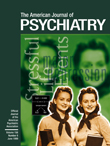Drs. Hess and Weiner have brought together 44 psychologists, psychiatrists, and lawyers to produce this encyclopedic treatment of forensic psychology. They cite the works of 2,000 authors. The editors list the contributors by name, degree, and, usually, the institution in which they work. Although there is no biographical information on any of them, their scholarship is impressive and speaks for itself.
There are 25 chapters organized into six sections. The first comprises three chapters that place forensic psychology in perspective by defining it and relating its history. Parts 2 to 5 address the applicability of psychology to civil proceedings, criminal proceedings, expert testimony, and intervention with offenders. The final section deals with professional ethics and training.
More than half of the text is devoted to the applications of psychology to legal proceedings. Of particular interest to me as a psychiatrist who does forensic work were the chapters on assessment of dangerousness, on defining and evaluating competency to stand trial, and on specific intent and diminished capacity.
The authors of the chapter on dangerousness conclude that there has been substantial progress in recent years through improvement in research methods and the development of assessment instruments and guidelines for evaluators. They emphasize the Violence Risk Assessment Guide, which combines clinical evaluation with statistics-based prediction (p. 181). This and other instruments that they discuss in detail have been developed since the first edition of this work was published in 1987.
The chapter on competency to stand trial provides an overview of the large body of published writing and research on the subject. The authors conclude that competency to stand trial depends on the match between the defendant’s mental status and the demands placed on him or her in the context of the case.
In the matter of the determination of a defendant’s capacity to form the requisite intent to commit an offense, expert witnesses generally cannot offer testimony that will alter the outcome of a trial. During the 1960s and 1970s, high court decisions moved to ameliorate the M’Naughten Rule, with its narrow definition of legal insanity, in favor of more liberal standards set down in the American Law Institute Model Penal Code (p. 355). The effect was to equate diminished capacity with diminished responsibility. There was a legislative and judicial backlash after the assassination attempt on President Reagan and the killing of San Francisco’s mayor and one of its supervisors. Legislation and court decisions have subsequently reversed the trend. As a result, psychiatrists and psychologists can demonstrate that, because of mental illness, a defendant was incapable of appreciating the wrongfulness of his or her behavior but not that, because of inability to form intent, the crime was not as charged.
There are four chapters on intervention that cover crime prevention and punishment; assessment, diagnosis, and treatment in correctional settings; substance abuse programs; and several psychosocial treatment strategies, including psychotherapy.
It seems to me that this volume, which thoroughly covers the English-language literature on forensic psychiatry and psychology, is one that those of us who work with forensic patients ought to have at hand as a source. I suspect that the first edition is already serving in that way for many who have access to it.

